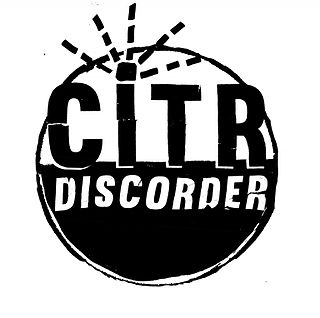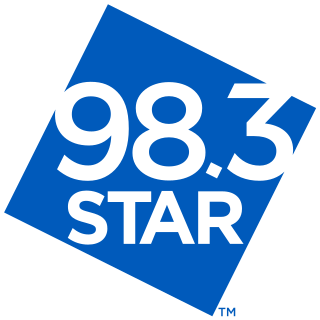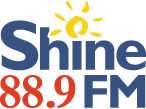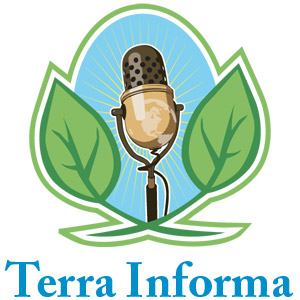
CKLN-FM was a community radio station based in Toronto, Ontario, Canada.
Aboriginal Voices Radio Network was a Canadian radio network, which primarily broadcast music programming and other content of interest to aboriginal people. As of June 2015, the network operated stations in Toronto, Ontario, Calgary and Edmonton in Alberta, and Vancouver, British Columbia. All of its stations were licensed as rebroadcasters of its flagship station, CKAV-FM in Toronto. The network's administrative office was located in Ohsweken, Ontario, on the Six Nations Indian reserve near Brantford. The stations' music programming consisted mainly of adult contemporary music, along with specialty programs focusing on aboriginal-oriented content.
CFRN-DT is a television station in Edmonton, Alberta, Canada, part of the CTV Television Network. It is owned and operated by network parent Bell Media alongside cable-exclusive CTV 2 Alberta. The two outlets share studios with sister radio station CFRN on Stony Plain Road in Edmonton; CFRN-DT's transmitter is located near Highway 21, southeast of Sherwood Park.

CJSW-FM is a campus radio station, broadcasting at 90.9 FM, from the University of Calgary, in Calgary, Alberta, Canada. CJSW is a member of the National Campus and Community Radio Association and the University of Calgary Tri-Media Alliance in partnership with NUTV and The Gauntlet. CJSW's studios are located in the MacEwan Student Centre on the University of Calgary campus, with its transmitter located at Old Banff Coach Road and 85 Street Southwest.

CFBX-FM 92.5 FM, also known as "The X", is a campus radio station at Thompson Rivers University in Kamloops, British Columbia, Canada.

CiTR-FM is a non-commercial FM radio station in Vancouver, British Columbia. It is owned by the University of British Columbia, with studios in its Student Union Building in the University Endowment Lands, just west of the city limits of Vancouver. It airs a variety of musical genres, including adult album alternative, as well as news and talk programming.
The National Campus and Community Radio Association/L'Association nationale des radios étudiantes et communautaires (NCRA/ANREC) is a non-profit organization of campus radio and community radio stations in Canada.

CHRW-FM is a Canadian radio station, broadcasting at 94.9 FM in London, Ontario. It is licensed as a community-based campus radio station by the Canadian Radio-television and Telecommunications Commission. The station broadcasts from Room 250 of the University Community Centre at the University of Western Ontario.

CBR is a Canadian non-commercial public radio station in Calgary, Alberta. It broadcasts the programming of the CBC Radio One network, both on 1010 kHz on the AM dial and 99.1 MHz on the FM dial as CBR-FM-1. The studios are in the Parkdale neighbourhood of northwest Calgary.

CFBU-FM is a radio station serving St. Catharines, Ontario, Canada. Branded on-air as Brock Radio, it is the community-based campus radio station of Brock University. The station broadcasts at 103.7 FM, with an effective radiated power of 250 watts, from a transmitter located atop the Arthur Schmon Tower on the Brock campus.

CKXU-FM is a Canadian Not-for-profit radio station, broadcasting at 88.3 FM, from the University of Lethbridge, in Lethbridge, Alberta, Canada.

CFCR-FM, is the community radio station in Saskatoon, Saskatchewan which broadcasts at 90.5 FM. The station also streams live from their web site and airs on SaskTel Max, channel 820. CFCR-FM is a member of the National Campus and Community Radio Association (NCRA).

CKSR-FM is a Canadian radio station located in Chilliwack, British Columbia. The station, operating at 2,100 watts of power, is owned by Rogers Radio, a division of Rogers Sports & Media. CKSR also runs a repeater station in Hope.
CFMH-FM is a Canadian radio station broadcasting at 107.3 MHz in Saint John, New Brunswick. It is the campus-based community radio station at the University of New Brunswick Saint John. CFMH-FM's studios and offices are located in the Thomas J. Condon Student Centre on the UNB Saint John campus in the North End of Saint John.

CJSI-FM is a christian radio station that broadcasts at 88.9 FM from Calgary, Alberta, Canada. The station uses the on-air brand Shine 88.9 FM, part of the Touch Canada Broadcast Network along with sister stations CJRY-FM in Edmonton and CKRD-FM in Red Deer. CJSI's studios are located on MacLeod Trail South, while its transmitter is located on Old Banff Coach Road in the western part of Calgary.

CFWE is a radio network based in Edmonton, Alberta. Owned by the Aboriginal Multi-Media Society, it broadcasts programming targeting northern Alberta's First Nations communities, including mainstream country music, and specialty shows featuring Indigenous music or presented in native languages such as Cree and Dene.

Terra Informa is a weekly, half-hour environmental news program produced out of CJSR Radio in Edmonton, Alberta. Currently airing in more than 50 communities from coast to coast, it is one of the most widely broadcast shows on Canadian campus and community radio.
CJBU-FM, branded as Caper Radio, is a radio station in Sydney, Nova Scotia, Canada, which broadcasts as a campus and community radio format on the frequency of 107.3 MHz (FM). The station is owned and operated by Caper Radio Incorporated, a not-for-profit corporation controlled by its board of directors, and programmed by, and serving the students at Cape Breton University. Presently, Caper Radio is a member of the NCRA and offers a majority of programming in English, but also airs selections in French and third-language.

CKVB-FM is a Canadian radio station. The station broadcasts a Country/community radio format on 100.1 FM in Corner Brook, Newfoundland and Labrador.

Community radio in Canada is a legally defined broadcasting category governed by the Canadian Radio-television and Telecommunications Commission (CRTC). It is distinct from the other two categories, commercial broadcasting, and public broadcasting. Community radio can be considered a subcategory of alternative media. Community radio exists worldwide and is often broadly similar around the world, however, it can have variations in the government regulations that they are required to follow, the national or regional contexts in which its developed and the specific culture, goals or methods they adhere to.















